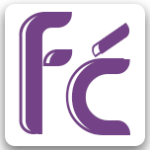FelixaCare - RemoteCare
Remote patient monitoring solution
FelixaCare’s Remote Patient Monitoring Solution, A Digital health and health technologies have a broad scope, including categories such as telehealth, health information technology, wearables, mHealth, etc. Telehealth is the distribution of health-related services and information via electronic information and telecommunications technologies. It allows long-distance patient and clinician contact, care, advice, reminders, education, intervention, monitoring, and remote admissions. These technologies can give us new ways to prevent chronic conditions, find them early, and treat them. The future of remote care in a post-pandemic world is reliant on secure, smart accessibility that will help doctors make speedier diagnoses and recommend effective treatments for patients. Felixacare is bundled with many important modules that help a hospital be equipped with a remote care facility. Some of the features are listed here.
Connected Care
FelixaCare’s Connected Care module uses the cloud and AI. Cloud technology links patients, caregivers, doctors, ambulance drivers, and other health professionals through smartphone apps and digital health gadgets.
Remote Patient Monitoring
Remote patient monitoring allows patients to be monitored at home or in remote areas, which may expand access to care and lower healthcare expenditures. Clinics can monitor all connected patients via a console. This tracking console analyses vital signs, health reports, AI-based alerts and notifications, trend analysis, goals, healthcare delivery status, and more.
Doctor's appointment
Patients can schedule and prepay for doctor visits using the module. The app lets doctors schedule their availability. Patients can book physical or electronic visits. Tele-consultation requires video streaming in eVisit.
Remote Service Access
Remote Service Access lets patients use hospital services remotely. This module will digitise treatment, oxygen, remote patient beds, and other service requests. Consoles will handle service and equipment requests for the hospital’s business management staff. Doctors and patients can use chat windows to transmit text, image, and voice questions. Computers and cellphones allow doctors to answer such questions. This feature simplifies patient-physician communication. Premium-paid hospitals can use this module.
Treatment Planner
A doctor’s clinic treatment planner will automate chronic patient and elderly care. Doctors might create post-hospitalization or outpatient care programs. A care plan may include future hospital visits, treatments, medications, blood tests, radiology exams, diets, and more. The Felixacare mobile app dashboard will display planned treatments. The app will remind patients and carers of their plans. The Felixacare smartphone app lets patients automatically order or request planned therapy and medicines from home.

Chronic Disease Management
Felixacare’s AI and machine learning make chronic disease management easier. Doctors and other healthcare professionals can access remote patient data at any time, analyse it, examine medicines, design new treatment plans, and communicate directly via digital media. Felixacare lets chronic patients exchange their food habits, vital signs, medical information, prescriptions, and healthcare goals with a doctor. This improves chronic patient diagnosis and treatment.
Continuum Care
A continuum of care and attention must be provided by family members or care volunteers to geriatric patients. Typically, geriatric treatment regimens would involve both conventional therapies and emotional support. Such patients are connected with their families by Felixacare. Throughout the treatment path, FelixaCare seeks to interact with, assist, and empower patients on a logistical and emotional level.
E Prescription
ePrescription digitises remote prescription prescribing to reduce pharmaceutical mistakes and increase workflow transparency. Patients can also track their medications with this module. The app and platform track medicine use. The patient can check it anytime, and the clinic knows the patient is taking their prescriptions correctly.
Medical Records
The Felixacare smartphone app organises patient healthcare documents like prescriptions, lab reports, radiology reports, discharge summaries, etc. Physicians can access these documents from patients. FelixaCare’s machine learning technology can analyse these papers and make diagnoses. Patients’ EHRs will update automatically.
Instructions
Instructions from different doctors received in various situations like consultations, eVisits, and EHR reviews are organised under the digital instructions in the patient smartphone application. This consolidated view of medical instructions helps patients be educated and well-informed.

Reminders
The patient’s smartphone app’s Reminder module helps them remember treatment events. These reminders are generated from the treatment plan. The app lets patients set reminders for themselves. The patient’s smartphone app’s Reminder module helps them remember treatment events. Treatment plan-generated reminders The app lets patients set reminders for themselves.
Integration with other devices
A patient’s smartphone app can integrate digital health devices such as pulse oximeters, BP monitors, and breathing monitors. The programme automatically records device readings. Doctors can readily analyse the patient’s health history by plotting graphs in the EHR. FelixaCare will alert or alarm if the data is abnormal. Different communication channels, such as SMS, WhatsApp, email, and push notifications, are integrated into the platform.
Emergency
The emergency call button in the smartphone application is for patients to contact their immediate carers or nearby clinics. These contact numbers are validated and updated by the clinics.
Send us a Message For a better offer
CONTACT
A- 307 , United Crossandra, Opposite Horamavu Lake, Hormavu Agara Bangalore, Karnataka , 560043
India
- [email protected]
- +91 9731066055 +91 7561057363

